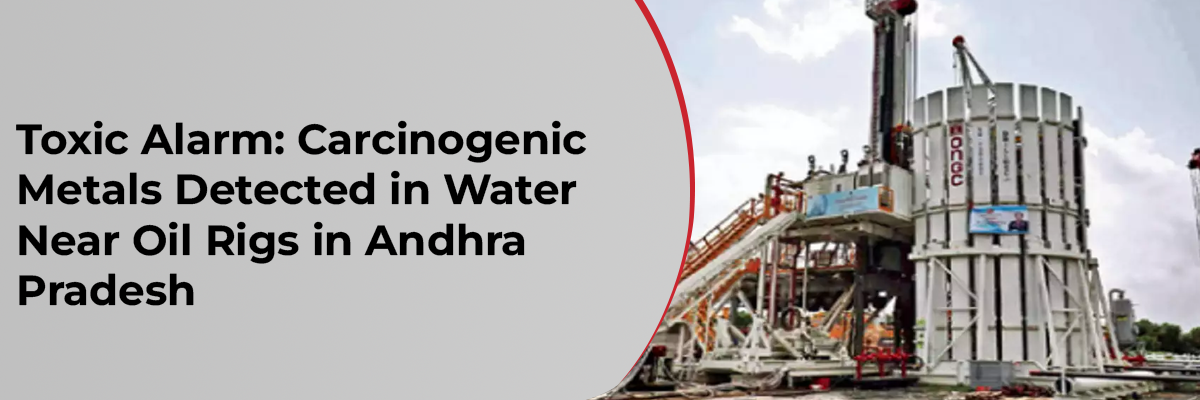
 IJCP Editorial Team
IJCP Editorial Team
Toxic Alarm: Carcinogenic Metals Detected in Water Near Oil Rigs in Andhra Pradesh
A significant scientific study conducted by researchers from the CSIR-National Geophysical Research Institute in Hyderabad has unveiled alarming levels of carcinogenic metals in water sources near oil and gas drilling sites in Rajahmundry, Andhra Pradesh.
The study specifically focused on soil contamination around these East and West Godavari drilling sites, collecting 139 soil samples from various locations. Extensive analysis of the samples revealed the presence of elevated levels of heavy metals such as arsenic, chromium, copper, nickel, lead, and zinc. These findings indicate the existence of both natural sources and anthropogenic contamination, primarily caused by the discharge of backwater waste generated during drilling activities. Furthermore, agricultural practices in the area may also contribute to the presence of heavy metal contamination from anthropogenic sources.
The researchers discovered very high concentrations of arsenic, lead, and chromium in the soil, which could potentially contaminate groundwater, posing a severe threat to human health. Several sampling points demonstrated a high potential risk of arsenic and lead, indicating medium to high levels of chronic and carcinogenic risks.
Their research paper “Spatial Distribution, Sources, and Health Risk Assessment of Heavy Metals in Topsoil Around Oil and Natural Gas Drilling Sites, Andhra Pradesh, India” has been published in the esteemed journal Scientific Reports of Nature.’
The research team, consisting of Keshav Krishna Aradhi, Babu Mallesh Dasari, Dasaram Banothu, and Satyanarayanan Manavalan, employed advanced multivariate statistical tools to conduct their analysis.
These findings highlight the urgent need for immediate attention and mitigation measures to address the contamination of water sources near oil and gas drilling sites. Protecting human health and the environment should be the top priority, and comprehensive actions must be taken to prevent further exposure to these harmful carcinogenic metals.

IJCP Editorial Team
Comprising seasoned professionals and experts from the medical field, the IJCP editorial team is dedicated to delivering timely and accurate content and thriving to provide attention-grabbing information for the readers. What sets them apart are their diverse expertise, spanning academia, research, and clinical practice, and their dedication to upholding the highest standards of quality and integrity. With a wealth of experience and a commitment to excellence, the IJCP editorial team strives to provide valuable perspectives, the latest trends, and in-depth analyses across various medical domains, all in a way that keeps you interested and engaged.









.jpg)








.jpg)

Please login to comment on this article